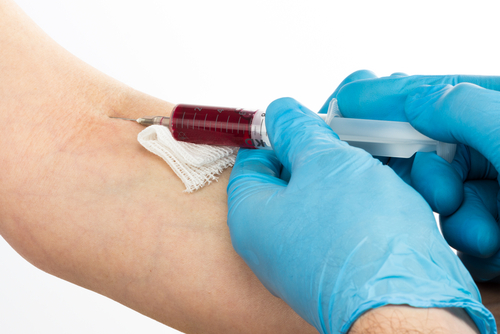Warrant generally isn't needed to draw blood from unconscious person suspected of DUI, says SCOTUS

Photo by Szabolcs Borbely/Shutterstock.com.
U.S. Supreme Court Justice Stephen G. Breyer joined with conservatives Thursday in a decision that allows police in most circumstances to obtain a blood draw from an unconscious motorist without getting a warrant.
Justice Samuel A. Alito Jr. wrote the plurality opinion, joined by Breyer, Chief Justice John G. Roberts Jr. and Justice Brett M. Kavanaugh. Justice Clarence Thomas concurred in the judgment.
Alito said that police are “almost always” allowed to order a blood draw from an unconscious driver without a warrant when they have probable cause to think that the person was driving drunk.
Alito said the blood draw is generally permitted under the “exigent circumstances” exception to the Fourth Amendment’s general requirement of a warrant. The exception allows warrantless searches to prevent the dissipation of evidence, which consists of the dissipation of blood alcohol from metabolic processes in drunken-driving cases.
Thomas would have given police officers even more leeway with a ruling that no warrant is ever required when officers have probable cause to think that a driver is drunk.
The case arose from drunken-driving charges filed in Wisconsin against a man named Gerald Mitchell. A police officer in Sheboygan had encountered Mitchell wandering near a lake after receiving a report about a man who climbed into a van and began driving despite appearing to be very drunk. A preliminary breath test was triple the legal limit in the state.
Mitchell was too lethargic for a breath test when police took him to the station, so they took him to a hospital. By that time, Mitchell had lost consciousness and the blood draw was performed.
Alito’s opinion gives Mitchell a chance on remand to try to show that this was an unusual case in which the exception did not apply.
Justice Neil M. Gorsuch dissented because the court ruled based on the doctrine of exigent circumstances, rather than on the implied-consent issue before the court. He would have dismissed the case as “improvidently granted and waited for a case” on exigent circumstances.
Justice Sonia Sotomayor also noted in her dissent that Wisconsin had not argued the case based on exigent circumstances. “Because the plurality needlessly casts aside the established protections of the warrant requirement in favor of a brand-new presumption of exigent circumstances that Wisconsin does not urge, that the state courts did not consider, and that contravenes this court’s precedent, I respectfully dissent,” she wrote.
Sotomayor’s dissent was joined by Justices Ruth Bader Ginsburg and Elena Kagan.
The case is Mitchell v. Wisconsin.
Related article:
ABAJournal.com: “Law allowing blood draw from unconscious motorist to be reviewed by Supreme Court”



